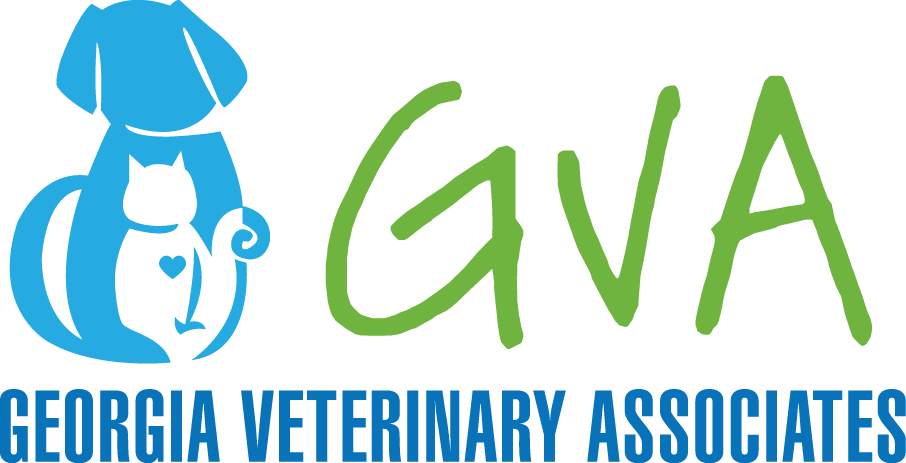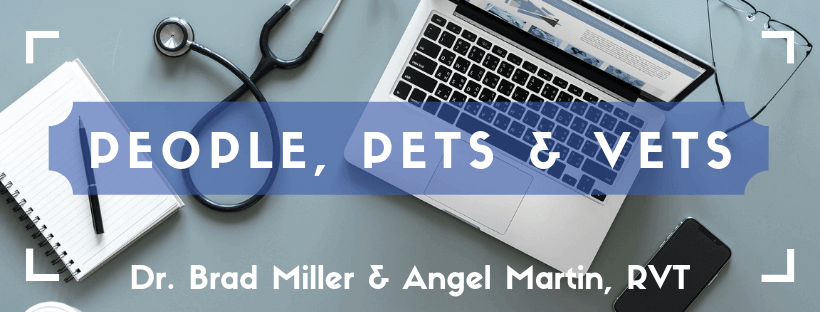Duration: 32:30:00
Subscribe: Spotify | iTunes | Google Play | PlayerFM | SoundCloud | iHeartRadio
Welcome to Episode 53!
In today's episode, we'd first like to thank Dr. Mike Wanchick for joining us on last week's episode! We are going to make it a goal to have Dr. Mike Wanchick on more of our episodes as he enjoyed it and we enjoyed having him! Plus it's great for our audience to get to know the other founder of GVA as well as Dr. Brad Miller.
We'll talk about some recent events and happenings such as Dr. Miller's trip to Miami for a Merck conference and Angel's family cruise that hopefully isn't going to get canceled. We will also talk about the 7S society and their goal in getting locally owned veterinary practices to offset corporate practices.
A majority of our podcast focuses on the Coronavirus from a medical standpoint. We want to help ease some of the confusion and help inform our viewers on what exactly COVID-19 is. We'll list a few of the terms Dr. Miller and Angel talked about below. Sourced from the OPB.org and their article 'A Glossary Of Coronavirus Terms, FRom ARDS to Zoonotic'.
- Acute Respiratory Distress Syndrom (ARDS): An often-fatal failure of the respiratory system. When an illness is called “acute,” it means it comes on really quickly, which makes getting treatment fast necessary. People with ARDS breathe rapidly, are short of breath and might have bluish skin. ARDS is a potential complication of COVID-19, and it can happen very quickly. If you are experiencing those symptoms, go to the doctor immediately.
- Alveoli: The tiny air-filled sacs that make up our lungs. Lungs aren’t like big balloons. They’re more like sponges made up of millions of tiny balloons. There are cells in our alveoli that make a protein that lubricates our lungs and keeps them happy. The COVID-19 virus binds to those cells. Researchers think that may be why the virus is so much more severe than the cold-causing coronavirus.
- Antiretroviral Drugs: These are drugs that attack retroviruses like HIV. Antiretrovirals block or slow down an enzyme that retroviruses use to chop up DNA. If a virus can’t chop DNA, it can’t make more of itself and can’t make you sick. Because coronavirus also uses this enzyme, there was some hope that already existing antiretrovirals could fight the COVID-19 virus. Unfortunately, there’s little evidence that it works on coronavirus. But hope is not lost — there are other antivirals out there! There are currently clinical trials investigating if the antiviral drug remdesivir works against coronavirus.
- Antibacterial: Kills bacteria — but not viruses. Antibacterial soaps are no more effective than regular soap against viruses like the coronavirus.
- CDC: Stands for the Centers for Disease Control and Prevention. The CDC is the U.S. agency that tracks diseases across the country, and is responsible for confirming COVID-19 cases. The main lab is in Atlanta, but the agency has other labs around the country where the study of deadly diseases and the search for cures take place.
- Coronavirus: A group of RNA viruses that circulate in animals and humans. In humans, they cause respiratory illnesses, which means they cause symptoms in the lungs, throat, and airways.
- COVID-19: The disease caused by SARS-CoV-2.
- CT Scan: “Computer Tomography scan.” It’s an advanced type of X-ray that makes a more detailed image. CT scans can help identify suspected coronavirus patients. Did you know, we have one at our Russell Ridge Location!
- Incubation Period: The amount of time it takes for an infected person to start showing symptoms. Most people develop COVID-19 symptoms by day 12, but some people will take longer.
- Novel Coronavirus (nCoV): Any new coronavirus that hasn’t been studied yet or that has just emerged. When SARS-CoV-2 was first found, it was called 2019-nCoV. The SARS-CoV-2 virus causes the disease, which is called COVID-19.
- Pandemic: An epidemic that has spread to multiple continents or countries. On March 11, after extensive COVID-19 spread on multiple continents, the WHO officially declared the coronavirus outbreak a global pandemic.
- Personal Protection Equipment (PPE): Equipment such as masks and gloves that doctors and nurses wear to protect themselves from diseases.
- PUI: Person Under Investigation. These are people with COVID-19-like symptoms who are not confirmed to have the virus. PUIs can be individuals who had contact with a confirmed case and are displaying some symptoms or they can be people who were hospitalized with severe pneumonia without a different explanation.
- PUM: Person under monitoring. A individual who does not have COVID-19 symptoms but who has been in contact with someone who is presumed or confirmed to have the virus. A PUM is “monitored” until they’ve gone a period of time without developing symptoms.
- SARS-Cov-2: The novel coronavirus that was first noticed in Wuhan, China, and is responsible for the current outbreak. The disease it causes is called COVID-19.
Lastly, we will talk about the ducks China is sending to the Middle East to help combat their locus problem that is destroying a vast number of their crops!
Do you have a medical condition you'd like Dr. Miller and Angel to talk about? Let us know! Email us at [email protected] or message us on Instagram or Facebook!
Thanks for listening and make sure to follow GVA on Facebook, Instagram, Twitter, and Pinterest.



